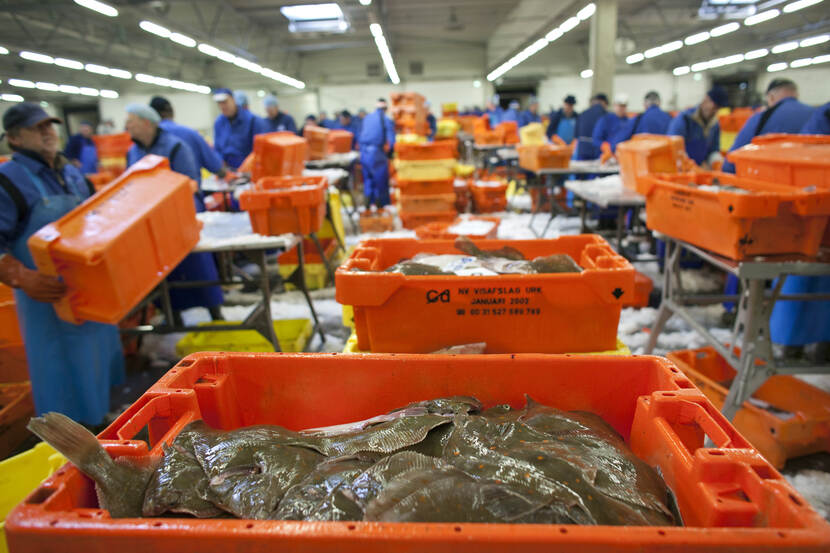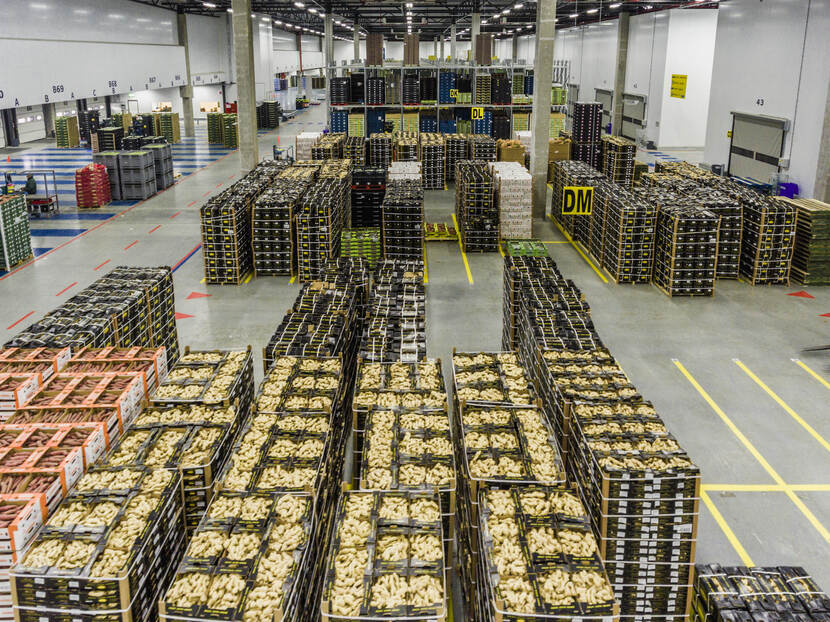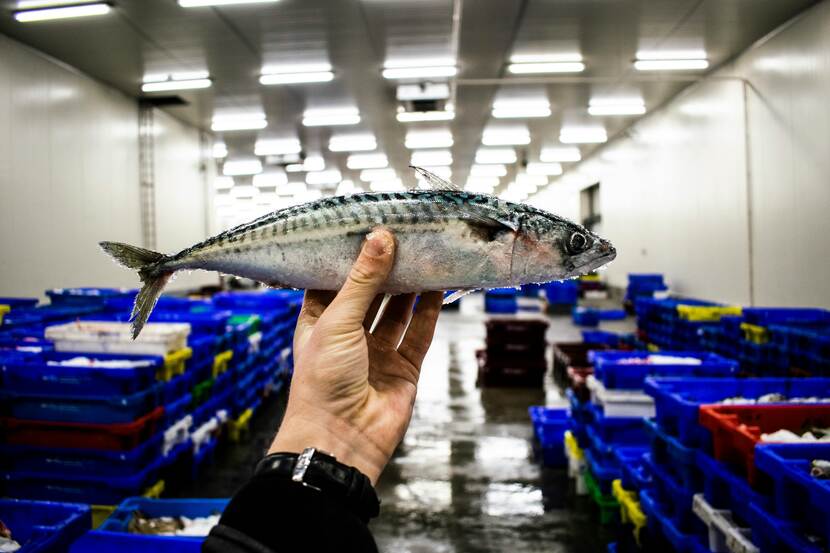Enhancing Cold Chain Logistics in the GCC: A Strategic Path to Food Security
The Gulf Cooperation Council (GCC) is undergoing a significant transformation in agrifood logistics and cold chain infrastructure, driven by national food security strategies, technological advancements and increasing consumer demand for fresh produce, dairy, seafood and chilled and frozen meat. With governments investing in sustainable food production, advanced logistics and climate-resilient storage, the region presents vast opportunities for Dutch companies specializing in post-harvest solutions, cold chain logistics and supply chain optimization.

The 2025 Desk Study Report, “Business opportunities in the GCC for Dutch agrifood companies active in post-harvesting, cold and supply chain’ commissioned by the Netherlands Agricultural Network in the GCC, provides in-depth insights into the evolving market landscape, regulatory environment and potential for Dutch expertise to contribute to the region’s food security and logistics transformation.
Market Drivers and Growth Factors
Food security remains a top priority across the GCC, where extreme climatic conditions and water scarcity limit local agricultural production. Governments are investing heavily in food supply chain resilience, increasing cold storage capacities and promoting controlled environment agriculture (CEA) and aquaculture to reduce dependency on imports. The growing demand for fresh produce, dairy and seafood, along with rapid urbanization and population growth, further accelerates the need for robust cold chain solutions.
The expansion of cold chain logistics in the GCC is fueled by several key factors, including:
- Rising Food Demand: Population growth, increasing urbanization and evolving consumer preferences for fresh, organic and high-quality produce are reshaping food supply chains.
- Shift Towards Local Production: Governments are reducing import reliance by investing in domestic greenhouse farming, aquaculture and sustainable food production. Notably, Saudi Arabia’s NEOM and the UAE’s AgTech parks are spearheading these developments, emphasizing the need for efficient cold chain infrastructure.
- Sustainability and Efficiency: Cold chain innovations powered by renewable energy, such as solar-driven refrigeration, are addressing both environmental concerns and cost efficiency in the region’s harsh climate. These sustainable solutions are increasingly crucial as the region invests in climate-resilient technologies.
- Technology and Traceability: Blockchain, IoT and AI-driven logistics solutions are becoming essential for ensuring food safety, reducing waste and improving supply chain transparency. These technologies are particularly valuable in the GCC, where transparency in food sourcing and quality control is critical.
The region is also seeing a rise in organized retail, with hypermarkets, e-commerce and specialized food hubs driving demand for cold storage, temperature-controlled transport and last-mile logistics. The growing investments in greenhouse farming, vertical agriculture and aquaculture are increasing the need for efficient cold chain infrastructure to reduce post-harvest losses and improve supply chain efficiency.

Food Loss and Waste: A Critical Challenge
One of the biggest challenges facing the GCC’s agrifood sector is food loss and waste (FLW). An estimated 30-40% of food is lost before reaching consumers. Key causes include cold chain gaps, high refrigeration costs, supply chain fragmentation and limited awareness of loss reduction practices. Improving cold chain infrastructure is essential to addressing these challenges and ensuring food reaches consumers in optimal condition.
Government Initiatives and Regulatory Support
National food security strategies across the GCC are key enablers of market growth. The 2025 Desk Study Report identifies several government-driven initiatives that are shaping the agrifood logistics landscape:
- Saudi Arabia’s Vision 2030: This initiative prioritizes investment in high-tech agriculture, smart logistics hubs and infrastructure projects such as NEOM, which integrates advanced cold chain solutions and AI-powered supply chain optimization. The expansion of logistics centers, with 22 active hubs out of a planned 59, is strategically positioned to enhance food distribution.
- UAE’s National Food Security Strategy 2051: This strategy emphasizes the development of climate-controlled logistics hubs, blockchain-enabled food traceability and the expansion of free zones such as Jebel Ali Freezone (JAFZA) and Khalifa Economic Zone Abu Dhabi (KEZAD).
- Oman’s Vision 2040: Oman is emphasizing aquaculture and agrifood trade logistics to strengthen food security and diversify its economy.
Regulatory support, including strict food safety laws, import-export facilitation and financial incentives for logistics investment, further enhances the business environment for international firms looking to enter the GCC market.

Market Segmentation and Growth Prospects
The 2025 Desk Study Report highlights several fast-growing segments within the GCC’s agrifood logistics sector:
- Cold Storage & Distribution Centers: Investments in multi-modal food hubs and temperature-controlled warehouses, particularly in major logistics free zones, are expanding to meet growing demand.
- Temperature-Controlled Transport: There is a growing demand for reefer containers, cold trucks and last-mile chilled delivery solutions to ensure that perishable goods are delivered efficiently and safely.
- Digital Cold Chain Solutions: Real-time monitoring systems, AI-powered route optimization and blockchain-enabled traceability platforms are expanding, offering greater transparency and efficiency throughout the supply chain.
- Green Cold Chain Innovations: Renewable energy-powered cooling, eco-friendly packaging and energy-efficient logistics solutions are gaining traction as sustainability priorities grow across the region.
Regional Dynamics and Growth Centers
While cold chain investments are expanding across the GCC, key growth centers are emerging:
- Saudi Arabia is leading the charge with large-scale logistics hubs, agritech investments and infrastructure development in projects like NEOM. NEOM is not only a futuristic city but also a testing ground for sustainable food production and advanced cold chain logistics, integrating AI-driven supply chain solutions and renewable energy-powered cooling systems.
- The UAE continues to strengthen its position as a regional logistics hub, with state-of-the-art distribution centers, multimodal transport networks and free zones dedicated to food storage and trade. Dubai’s Food Tech Valley is an example of the country’s commitment to sustainable food systems and agrilogistics innovation.
- Oman and Qatar are also making strides in developing cold chain logistics, focusing on port-driven trade, seafood exports and supply chain efficiency. Qatar is increasing its infrastructure investments to strengthen its position as a logistics hub for the wider region.
Competitive Landscape and Key Players
The cold chain logistics market in the GCC is evolving rapidly, driven by increasing demand for temperature-controlled transportation and storage. Key global logistics companies such as Maersk, Agility Logistics and Lineage Logistics are expanding their presence in the region. Public-private partnerships (PPPs) present opportunities for Dutch companies to contribute their expertise in cold chain solutions, helping to modernize logistics infrastructure and improve temperature-sensitive supply chains.
Future Trends and Market Outlook
The GCC is embracing digital transformation in logistics, with blockchain, AI and IoT becoming essential for supply chain efficiency. Sustainability remains a key focus, with governments pushing for green logistics solutions such as solar-powered cold storage and circular economy models. Dutch firms can play a pivotal role by offering expertise in renewable-powered logistics, waste reduction and workforce training.
A Partnering Approach for Knowledge and Expertise Sharing
The GCC’s evolving logistics landscape requires international collaboration. Dutch companies, with their proven capabilities in sustainable logistics and digital transformation, are well-positioned to support the region’s goals. By sharing knowledge and expertise, Dutch businesses can play a crucial role in building infrastructure that meets the region’s needs while aligning with local priorities.
Upcoming Fact-Finding Mission to Saudi Arabia and the United Arab Emirates
The Netherlands Agricultural Network in the GCC is planning a fact-finding mission to Saudi Arabia and the UAE from 26-29 May 2025, coinciding with the Saudi Warehousing and Logistics Expo in Riyadh from 27-29 May 2025. Dutch companies with an interest in joining this mission are encouraged to register their interest via riy-lvvn@minbuza.nl.
Explore the Full Report
The Desk Study Report provides an in-depth analysis of these opportunities, regulatory landscapes and strategic recommendations for market entry. Dutch companies interested in tapping into the GCC’s agrifood cold chain sector are encouraged to obtain a copy of the report and seek guidance and support from the Netherlands Agricultural Network in the GCC. For further details and a copy of the full report, please contact us at riy-lvvn@minbuza.nl